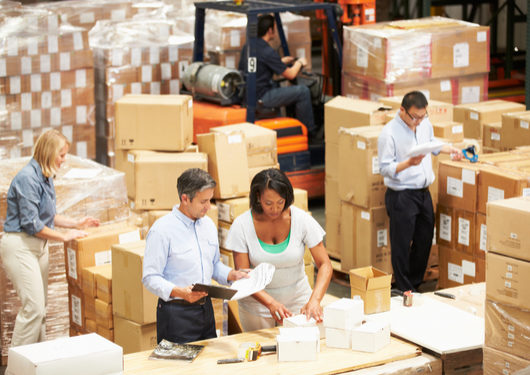
Visit Our Sponsors |
|
|
|
|
|
|
|
|
|
|
|
|
|
|
|
|
|
|
|
|
|
|
|
|
|
|
|
|
|
|
|
|
|
|
|
|
|
|
|
|
|
|
|
|
|
|
|
|
|
|
|
|
|
|
|
|

A report from DHL and Accenture bears this out. Despite all the hype surrounding blockchain today, the study's authors "believe that the logistics industry needs to leverage new technologies and embrace ways of rethinking old processes in the digital era." Referring to blockchain as "The New Internet," the report's author suggests that implementing blockchain in logistics could remove the need for intermediaries, while also verifying, recording and coordinating transactions autonomously without the need for third parties. In the process, blockchain-based supply chains would eliminate an entire layer of complexity from our global supply chains.
"Already many projects are underway to apply blockchain technology to global logistics, adding value by boosting supply chain transparency and automating administrative operations," the DHL-Accenture team observes. "Imagine how the physical flow of goods can be more effectively orchestrated and synced with information and financial flows when blockchain is combined with the Internet of Things, artificial intelligence, robotics and more."
The DHL-Accenture team sees the following benefits in applying blockchain to the supply chain:
1. Drive greater automation
Blockchain can greatly reduce bureaucracy and paperwork. The report's authors point out that up to 10 percent of all freight invoices "contain inaccurate data which leads to disputes as well as many other process inefficiencies in the logistics industry." Instead of attempting to manage a lengthy paper trail, blockchain provides for "an automated process storing information in a tamper-evident digital format." This automation can be extended to of services that currently require an intermediary such as insurance, legal, brokerage, settlement services, outsourced transportation management, normative compliance, route planning, delivery scheduling, fleet management, freight forwarding, and connectivity with business partners. Blockchain could be used to track a product’s lifecycle and ownership transfer from origin to store shelf, even as it changes hands between the manufacturer, logistics service provider, wholesaler, retailer and consumer. It would facilitate and automate each business transaction, enabling a more direct relationship between each participant (e.g., automating payments and transferring legal ownership between parties)."
RELATED CONTENT
RELATED VIDEOS
Timely, incisive articles delivered directly to your inbox.







